**Update as of December 10, 2024**
Recent legal developments have raised questions about the enforcement of certain anti-money laundering regulations. On December 3, 2024, a Texas judge issued a nationwide injunction blocking the enforcement of key provisions related to beneficial ownership reporting under the Corporate Transparency Act (CTA). This ruling may impact the timeline and scope of compliance requirements, particularly for small businesses and startups. However, it’s crucial for business owners to remain proactive. While enforcement is temporarily on hold, the broader goals of the CTA—to promote transparency and combat illicit financial activities—are still priorities for federal regulators. Preparing your organization to comply with potential future requirements ensures you remain ahead of the curve, regardless of ongoing legal challenges. An alert has been added to the FinCEN website.
Understanding the Corporate Transparency Act: Beneficial Ownership Information Reporting Requirements
The Corporate Transparency Act (CTA) is set to bring big changes for businesses across the country, especially with the introduction of the Beneficial Ownership Reporting Rule. Whether you’re a business owner or part of a corporate team, understanding the CTA can help you stay ahead of the curve. This new law aims to increase transparency and protect businesses from hidden financial risks—so let’s dive into what it means for you, why it matters, and how to ensure your company stays compliant.
What is the Corporate Transparency Act?
The Corporate Transparency Act was passed as part of the Anti-Money Laundering Act of 2020. It mandates that certain companies file reports with the Financial Crimes Enforcement Network (FinCEN), disclosing information about their “beneficial owners”—those who directly or indirectly own or control 25% or more of the company, or exercise substantial control over it.
The primary goal of the CTA is to crack down on money laundering, tax evasion, and other illicit financial activities by increasing the transparency of corporate ownership structures. In the past, shell companies were often used to hide the identities of individuals engaging in criminal activities. By requiring more businesses to disclose beneficial ownership information, the U.S. government aims to close this loophole and protect the financial system from abuse.
Who is Required to File?
The CTA affects a broad range of business entities, though certain types of organizations are exempt. Here’s a breakdown of who needs to file:
Corporations, LLCs, and Similar Entities
Most domestic and foreign entities that are registered to do business in the U.S. must file beneficial ownership information with FinCEN. This includes:
- Corporations
- Limited Liability Companies (LLCs)
- Limited Partnerships
- Business Trusts
New and Existing Entities
Both new businesses formed after January 1, 2024, and existing entities are subject to this law. New businesses must submit their beneficial ownership information at the time of formation, while existing entities must report by January 1, 2025.
Small Businesses
Small businesses, even those that are family-owned, may need to comply if they fall within the criteria outlined by the CTA.
However, some entities are exempt from filing under the CTA. These include:
- Publicly traded companies
- Large operating companies that meet all six of the required criteria lined out in Exemption #21 of the Reporting Company Exemptions List
- Regulated entities such as banks, credit unions, insurance companies, and registered investment advisers
- Nonprofits such as 501(c)(3) organizations
What Information Must Be Provided?
Companies required to file must report:
- Full legal name
- Date of birth
- Residential address
- Identification number (such as a passport or driver’s license)
This information must be submitted for each beneficial owner and kept up-to-date to ensure compliance. Failure to meet these requirements can result in hefty penalties, including fines of up to $500 per day for late filings. These daily fees can quickly add up, potentially costing your business thousands of dollars, making it crucial to stay on top of your reporting obligations.
Why Does This Matter?
The Corporate Transparency Act represents a significant shift toward increasing the accountability and transparency of U.S. businesses. While some companies may view this as an additional reporting burden, the law ultimately serves to strengthen the integrity of the financial system, making it harder for bad actors to hide behind anonymous corporate structures.
By staying informed about the CTA and ensuring timely compliance, businesses can avoid penalties and help contribute to a more transparent and secure economic landscape.
If you’re unsure about whether your business is required to file under the Corporate Transparency Act, it’s essential to consult with legal or financial professionals who can provide personalized guidance. With the January 1, 2025, deadline approaching, taking steps to comply now will help ensure your business stays on the right side of the law. If you would like more information on how to file, please give us a call at 817-550-6750.
Please remember to contact BentOak Capital (“BentOak”), in writing, if there are any changes in your personal/financial situation or investment objectives for the purpose of reviewing/evaluating/revising our previous recommendations and/or services, or if you want to impose, add, to modify any reasonable restrictions to our investment advisory services, or if you wish to direct that BentOak to effect any specific transactions for your account. A copy of our current written disclosure Brochure discussing our advisory services and fees continues to remain available upon request or at www.bentoakcapital.com.
This information is not intended to be a substitute for specific individualized tax advice. We suggest that you discuss your specific tax issues with a qualified tax advisor.
This material was created for educational and informational purposes only and is not intended as ERISA, tax, legal or investment advice. If you are seeking investment advice specific to your needs, such advice services must be obtained on your own separate from this educational material.
No investment strategy assures a profit or protects against loss.
Securities offered through LPL Financial, Member: FINRA/SIPC. Investment advice offered through BentOak Capital, a registered investment advisor and separate entity from LPL Financial.







